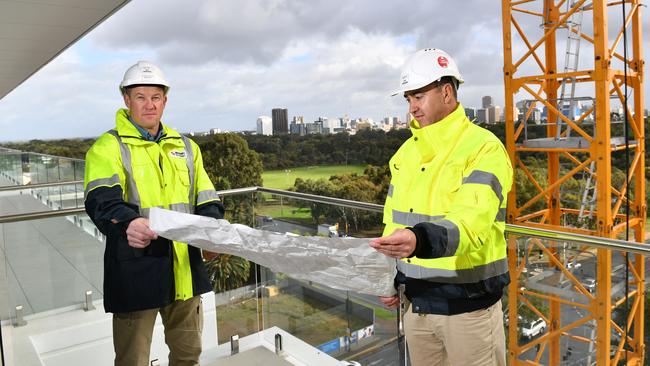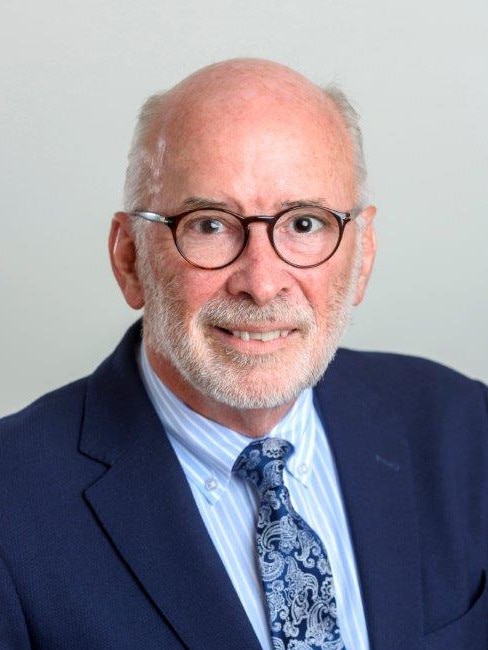Experts reveal their plans to rebuild shattered economy
Experts predict more than 100,000 SA workers will be smashed as COVID-19 blows billions out of SA’s economy for years. But our cleverest are already planning ways back. READ THEIR PLANS

Coronavirus News
Don't miss out on the headlines from Coronavirus News. Followed categories will be added to My News.
- Aussies set for ‘early mark’ on coronavirus restrictions
- How to get the most from your Advertiser subscription
Coronavirus lockdowns are set to destroy the jobs of a staggering 66,000 South Australians and blow a $10 billion hole in the local economy this year, expert analysis finds.
The report from the respected SA-based Australian Industrial Transformation Institute predicts the economy will take years to recover.
Australian Industrial Transformation Institute director John Spoehr finds the unprecedented but “necessary” health lockdowns are “having a profoundly negative impact on the SA economy and employment”.
“This will continue to be felt over the next four years,” he writes.
“Bold action and unprecedented investment by government has been necessary to tackle the virus and support millions of Australians and businesses at this time of crisis.
“Business as usual will not be sufficient to avoid this being a long and protracted calamity for the state.
CLICK EACH PICTURE TO SEE THEIR IDEAS TO REBOOT SA
“Accelerating the recovery from the economic and employment impacts of COVID-19 will require a commitment to sustained and smart investment in recovery.”
The report finds there has been a direct $5.1 billion hit to the businesses and sectors most impacted by the lockdowns, including aviation and accommodation as well as the arts and sport. But that is just in the three months to June, with the shockwave to continue through 2020.
Professor Spoehr estimates 66,000 people in SA will completely lose their jobs, not including those shifted to JobKeeper payments. Overall, up to 110,000 workers could be affected as they are cut loose entirely or shifted onto shorter-term hibernation plans.
The workers hit hardest are those in the hospitality and education and training fields.
The only sectors poised for significant extra employment are healthcare and social assistance. Latest Australian Bureau of Statistics figures are from March, predating imposition of the strictest lockdown measures, and show 852,000 people were employed in SA at the time.
Professor Spoehr’s report finds that the economy is likely to rebound faster than employment, and experience solid regrowth in 2021.
MORE NEWS:
Aussies set for ‘early mark’ on virus restrictions
Face-to-face learning making swift return to schools
SA hits nine in a row as privatisation plan dumped
It could take until mid-2024 for job numbers and overall economic output to return to pre-coronavirus lockdown conditions, he finds.
SA’s jobless rate is tipped to top out at 13.3 per cent by the middle of this year and stay in double digits, a rate not seen since the days after the State Bank collapse, until late 2023.
Premier Steven Marshall said the Government’s focus was to ensure it came out of the pandemic “stronger than before”.
“Every minister in every department has been charged with the responsibility of determining how we make the very best of this very very difficult situation,” he said.
Opposition leader Peter Malinauskas said Labor had already put forward a number of constructive ideas to help our economy recover. “This includes waiving State Government fees and charges, waiving council rates and establishing multimillion-dollar industry support funds,” he said.
Duties, sell-offs and death taxes
By Matt Smith, Daniel Wills and Jade Gailberger
Deaths tax, the abolition of stamp duty and the privatisation of one of the state’s biggest government-owned businesses have been put forward as bold plans to get South Australia’s economy back on track post COVID-19.

A survey of industry heavyweights by The Advertiser has revealed a broad wish list aimed at helping SA to recover from the economic impact facing the state.
As attention over the next seven days focuses in on how to reopen key parts of the economy, industry leaders are arguing long-term vision is needed to counter the effects of the coronavirus on the economy.
While many of the suggestions put forward echo traditional gripes from various sectors, others will generate significant debate throughout the community.
Australian Hotels Association SA boss Ian Horne, who represents arguably the hardest hit sector in the country, said it is essential industrial relations reform is high on the federal agenda.
“One size fits all” awards and conditions based on eastern states standards greatly disadvantage smaller states and fail small and medium business and the workforce that should have been employed,” Mr Horne said.
“How can the wage and award conditions applying to six-star property in the heart of Sydney be seen as suitable or helpful for the requirements of a country pub in, say, Peterborough or any regional town or country community?
Civil Construction Federation SA head Phil Sutherland says the State Government should consider a selling off SA Water that could garner an estimated $13 million he believes.
“The projected reinvestment of this money into productive infrastructure in SA could equate to an investment of up to $130 billion,” he told The Advertiser.
Respected economic analyst Michael O’Neil from the SA Centre of Economic Studies suggested a “big nation building project of fast rail” should be under consideration to support regions and tourism.
He also supported an increase in the jobseeker payment – a sentiment shared by SACOSS chief Ross Womersley.
Mr Womersley said taxation also needs to be on the agenda for State and Federal Governments.
“They need to remove taxes that inhibit our growth or are inefficient, for example payroll taxes and conveyance duties, and replace them with better, fit-for-purpose taxes including land, congestion and maybe even inheritance taxes.
SA Property Council boss Daniel Gannon echoed the sentiments of Premier Steven Marshall who has said the sate’s reputation as a safe destination should be promoted post COVID-19.
Master Builders Association boss Ian Markos urged Mr Marshall to look outside the state.
“Victoria and New South Wales abolished stamp duty for first homebuyers in 2017 and the ABS credited this policy for a sharp rise in the number of first homebuyers,” he said.
“ The government should give it a go, now is the right time – even a trial for 12 months then review the situation after that.”
Business SA chief Martin Haese’s message for the Federal Government was clear.
“Think boldly and ensure everything is on the table, including taxation, penalty rates, research and development grants,” he said.
